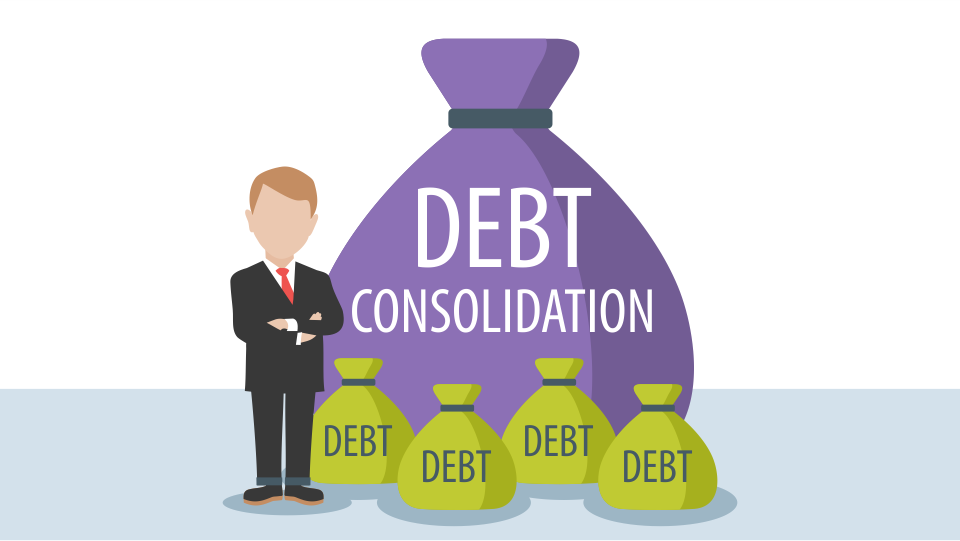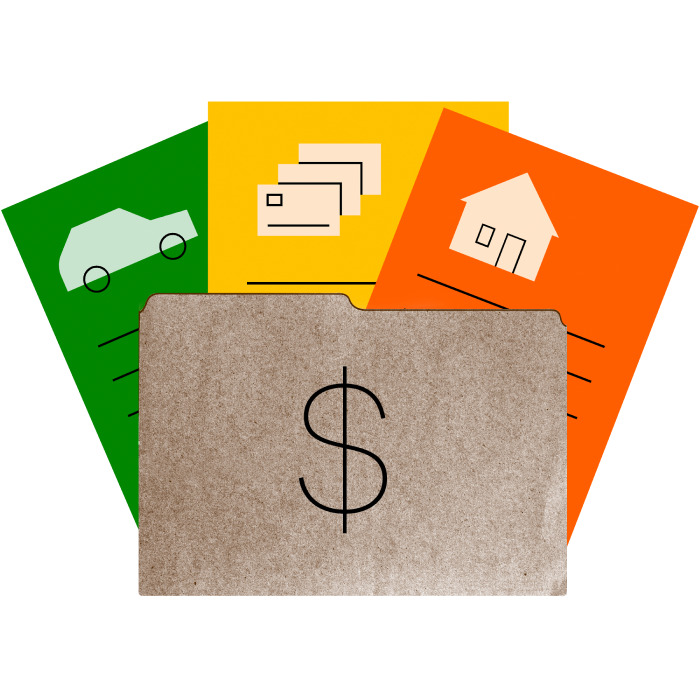Dealing with multiple debts can be overwhelming and challenging to keep track of. Juggling various interest rates, due dates, and payment amounts can lead to financial stress and even missed payments. However, there is a practical and popular strategy to simplify your financial life: debt consolidation.
In this article, we will explore what debt consolidation is, how it works, the benefits and drawbacks, different types of loans to consolidate debt, its impact on credit scores, and alternative solutions like debt settlement. By understanding these aspects, you can make an informed decision about whether debt consolidation is the right choice for you.
What Is Debt Consolidation?
Debt consolidation refers to the process of combining multiple debts into a single loan or credit line with more favorable terms. This strategy aims to simplify your debt repayment by streamlining multiple payments into one, potentially lowering interest rates, and extending the repayment period. By doing so, debt consolidation helps individuals regain control over their finances, reduce monthly payments, and work toward becoming debt-free.
How Debt Consolidation Works
The process of debt consolidation typically involves taking out a new loan or line of credit to pay off existing debts. This can be done through various methods, such as obtaining a personal loan, opening a balance-transfer credit card, or utilizing a home equity loan or line of credit. The funds acquired from the new loan are then used to pay off the individual's outstanding debts, leaving them with only one loan to repay.
One of the primary goals of debt consolidation is to secure a lower interest rate. By consolidating multiple high-interest debts into a single loan with a lower interest rate, borrowers can potentially save moneyover the long term. Additionally, debt consolidation can provide the convenience of a single monthly payment, making it easier to manage finances and avoid missed payments.
An Example Of Debt Consolidation
Let's consider a hypothetical example to illustrate how debt consolidation works in practice. Sarah, a recent college graduate, accumulated several debts during her studies, including credit card balances, a student loan, and a car loan. Each debt carries its own interest rate and monthly payment, making it difficult for Sarah to keep up with her financial obligations.
To alleviate the burden, Sarah decides to explore debt consolidation. After researching her options and consulting with a financial advisor, she decides to obtain a personal loan with a lower interest rate than her current debts. With the personal loan funds, Sarah pays off her credit card balances, student loan, and car loan, effectively consolidating all her debts into a single loan.
As a result, Sarah now has only one loan to manage, a simplified monthly payment, and a potentially reduced interest rate. By maintaining consistent payments and adhering to the terms of the new loan, Sarah can work towards paying off her debt more efficiently and improve her overall financial situation.
Is Debt Consolidation A Good Idea?
Debt consolidation can be a useful tool for individuals seeking to simplify their finances and manage their debt effectively. However, whether it is a good idea depends on various factors, including your financial goals, credit score, and personal circumstances.
One significant advantage of debt consolidation is the potential for lower interest rates. If you can secure a consolidation loan with a lower rate than your existing debts, it can save you moneyin interest payments over time. Additionally, the convenience of a single monthly payment can make it easier to stay organized and reduce the risk of missed payments.
Another benefit of debt consolidation is the potential to improve your credit score. By consolidating multiple debts and making regular payments on the new loan, you demonstrate responsible financial behavior, which can positively impact your creditworthiness over time.
However, it is essential to consider the potential drawbacks of debt consolidation as well. For instance, if you have a low credit score, you may have difficulty qualifying for a consolidation loan with favorable terms. Additionally, extending the repayment period through debt consolidation can result in paying more interest over time, even if the interest rate is lower.
What Is Risks Of Debt Consolidation
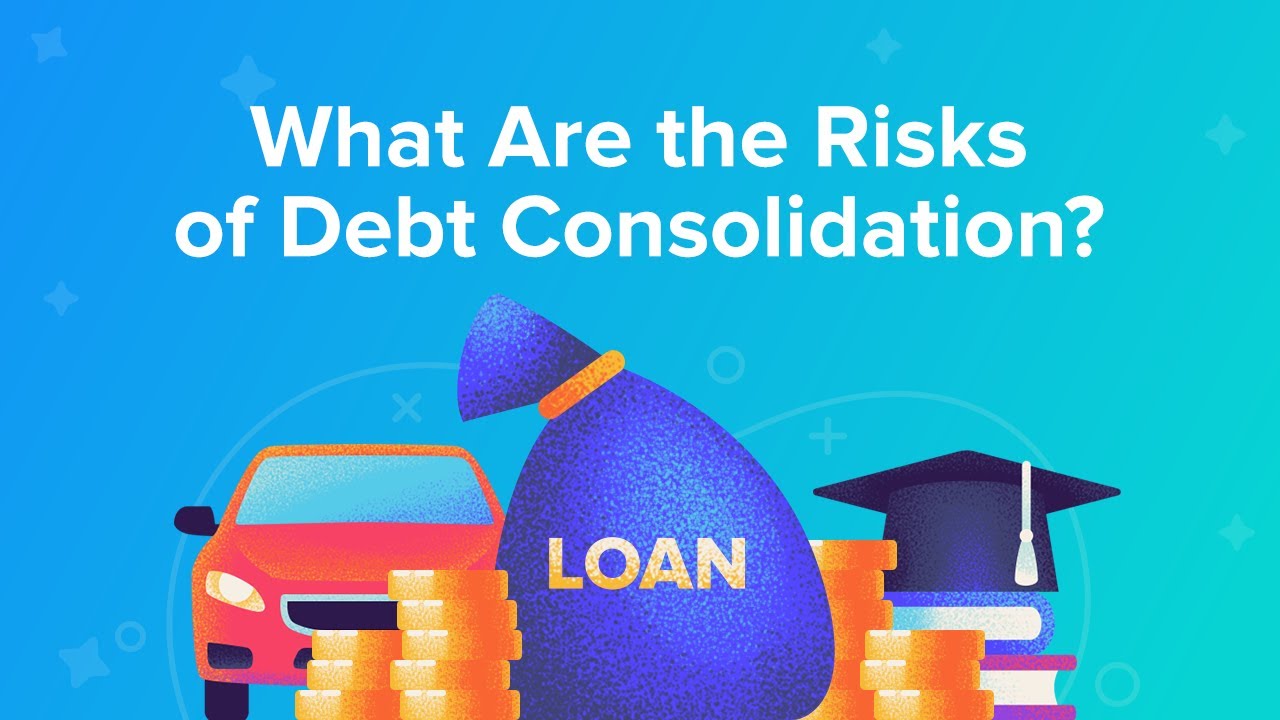
What Are the Risks of Debt Consolidation?
While debt consolidation can be an effective strategy for managing debt, it is crucial to be aware of the potential risks involved. Here are some key risks to consider:
- Accruing more debt - Consolidating debt does not eliminate the underlying financial behavior that led to debt accumulation. If you continue to overspend and accumulate new debts, you may find yourself in a worse financial situation.
- Loss of collateral - Some debt consolidation methods, such as home equity loans, use collateral to secure the loan. Failure to make payments on these types of loans can result in the loss of your home or other valuable assets.
- Origination fees and costs- Some debt consolidation loans may come with origination fees or other associated costs. These expenses should be considered when evaluating the overall cost-effectiveness of the consolidation.
- Impact on credit score - Applying for a new loan or closing existing credit accounts as part of the consolidation process can temporarily lower your credit score. However, responsible management of the consolidation loan can help rebuild your credit over time.
What Are Types Of Debt Consolidation Loans?
Debt consolidation can be achieved through different types of loans and credit options. The most common methods include:
- Personal loans- These unsecured loans are obtained from banks, credit unions, or online lenders. They can be used to consolidate various types of debt, such as credit cards, medical bills, or personal loans.
- Balance-transfer credit cards- These credit cards offer low or zero-interest promotional periods for balance transfers. By transferring high-interest debt to these cards, borrowers can save on interest and consolidate their payments.
- Home equity loans or lines of credit- These loans use the borrower's home equity as collateral. They can provide larger loan amounts and potentially lower interest rates but come with the risk of losing your home if you fail to make payments.
- Debt management programs - These programs, often provided by nonprofit credit counseling agencies, negotiate with creditors on your behalf to lower interest rates and consolidate monthly payments into a single amount.
The choice of the appropriate debt consolidation method depends on individual circumstances, such as the total debt amount, credit score, and available assets. It is crucial to evaluate the terms and costs associated with each option to determine the most suitable approach for your needs.
What Is Pros And Cons Of Debt Consolidation
Like any financial strategy, debt consolidation has its pros and cons. Let's examine some of the advantages and disadvantages:
Pros Of Debt Consolidation
- Simplified finances - Consolidating multiple debts into one loan can simplify your financial life by reducing the number of payments to manage and the associated paperwork.
- Lower interest rates- Debt consolidation can potentially secure a lower interest rate, resulting in reduced interest expenses and overall cost savings.
- Improved credit score - Consistently making payments on the consolidation loan can help improve your credit score over time.
- Potential for lower monthly payments - By extending the repayment period, debt consolidation can lower your monthly payment amount, providing more breathing room in your budget.
Cons Of Debt Consolidation
- Potential for increased overall cost- Extending the repayment period through consolidation can lead to paying more interest over time, even with a lower interest rate.
- Qualification requirements - Securing a consolidation loan with favorable terms may be challenging if you have a low credit score or insufficient income.
- Temporary credit score impact- Applying for a new loan or closing existing credit accounts can result in a temporary dip in your credit score.
- Risk of further debt accumulation- Debt consolidation does not address the underlying financial behavior that led to debt accumulation. Without responsible financial management, there is a risk of accruing new debts.
When considering debt consolidation, it is essential to weigh these pros and cons against your specific financial situation and goals. Consult with a financial advisor or credit counselor to evaluate the most suitable course of action for your needs.
Does Debt Consolidation Hurt Your Credit Score? FAQ
One common concern regarding debt consolidation is its impact on credit scores. Here are answers to frequently asked questions on this topic:
Does Applying For A Debt Consolidation Loan Affect My Credit Score?
Applying for a debt consolidation loan typically results in a hard inquiry on your credit report, which can cause a slight and temporary decrease in your credit score.
Does Closing Credit Accounts After Consolidation Hurt My Credit Score?
Closing credit accounts can affect your credit utilization ratio, which compares your outstanding debt to your available credit. If you close accounts after consolidation, it may increase this ratio and potentially lower your credit score. It is generally advisable to keep accounts open, especially the oldest ones, to maintain a longer credit history.
Can Debt Consolidation Improve My Credit Score?
Consistently making on-time payments on the consolidation loan can demonstrate responsible financial behavior and help improve your credit score over time.
Will My Credit Score Recover After A Dip Caused By Consolidation?
Yes, if you manage your consolidation loan responsibly by making payments on time and reducing your overall debt, your credit score will gradually recover.
How Long Does The Impact Of Consolidation On Credit Scores Last?
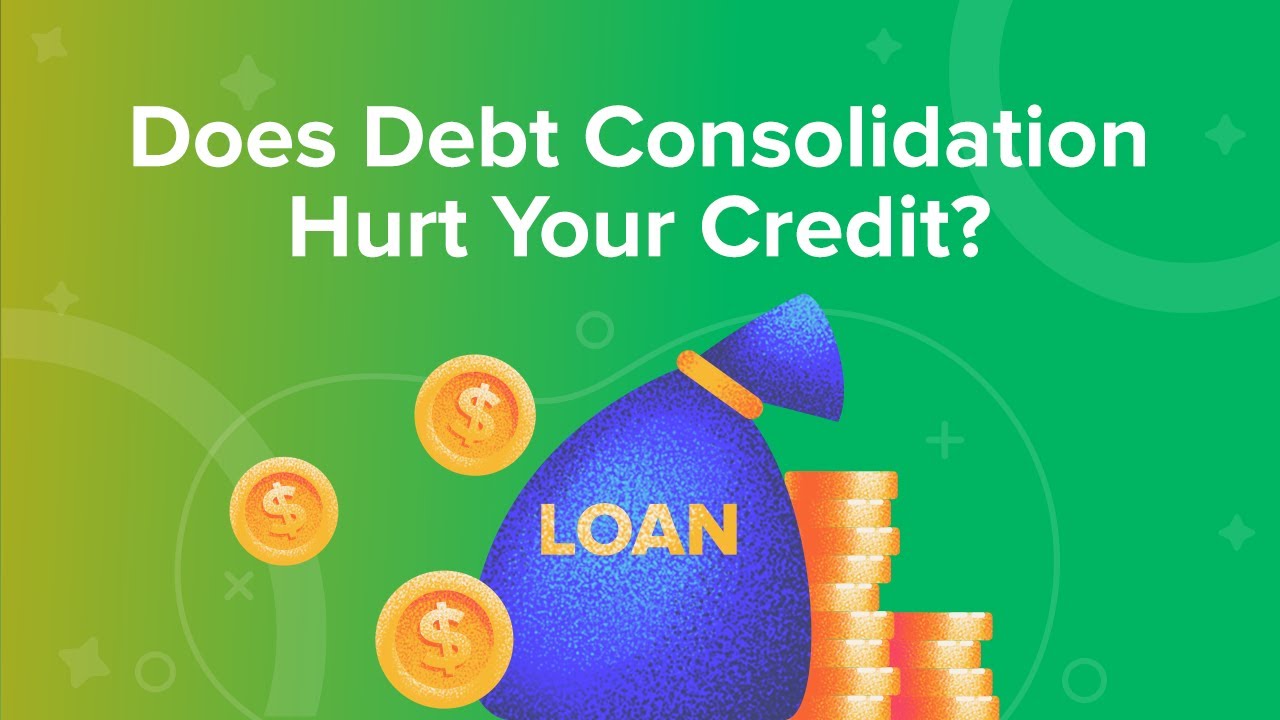
Does Debt Consolidation Hurt Your Credit?
The impact of consolidation on credit scores is typically temporary. As you continue to make payments and demonstrate responsible financial behavior, your credit score will recover.
What Are The Risks Of Debt Consolidation? FAQ
It is essential to understand the risks associated with debt consolidation. Here are some frequently asked questions regarding the potential risks:
Will Debt Consolidation Prevent Me From Accumulating More Debt?
Debt consolidation does not directly prevent you from accumulating new debt. It is crucial to address the root causes of debt accumulation and develop responsible financial habits to avoid falling back into debt.
Can I Lose My Home If I Consolidate Debt With A Home Equity Loan?
Home equity loans use your property as collateral. If you fail to make payments on the loan, you risk losing your home.
Are There Any Costs Associated With Debt Consolidation?
Some debt consolidation loans may have origination fees or other associated costs. It is important to consider these expenses when evaluating the overall cost-effectiveness of consolidation.
Can Debt Consolidation Programs Negotiate Lower Balances?
Debt consolidation programs, such as debt management plans, primarily focus on lowering interest rates and consolidating monthly payments. They do not typically negotiate lower balances.
How Can I Ensure A Successful Debt Consolidation?
To ensure a successful debt consolidation, it is crucial to create a budget, track your spending, and commit to responsible financial management. Avoid taking on new debts and make consistent payments on the consolidation loan to reduce your overall debt load.
What Is The Best Way To Consolidate Debt? FAQ
The most suitable way to consolidate debt depends on your individual circumstances. Here are some frequently asked questions to guide you in choosing the best consolidation approach:
Should I Consolidate With A Personal Loan Or A Balance-transfer Credit Card?
The choice between a personal loan and a balance-transfer credit card depends on factors such as your credit score, the amount of debt you have, and the interest rates offered by each option. Evaluate the terms, costs, and benefits of each before deciding.
Can I Consolidate Different Types Of Debt With The Same Loan?
Yes, many debt consolidation options allow you to consolidate various types of debt, including credit cards, personal loans, medical bills, and more.
Is Debt Consolidation A Good Option For Me If I Have A Low Credit Score?
Securing a consolidation loan with favorable terms may be challenging if you have a low credit score. In such cases, it may be beneficial to work on improving your credit before pursuing consolidation.
Should I Seek Professional Assistance For Debt Consolidation?
Seeking professional assistance from a financial advisor or credit counselor can provide valuable guidance and help you navigate the complexities of debt consolidation. They can evaluate your financial situation and recommend the best course of action.
How Can I Avoid Falling Back Into Debt After Consolidation?
To avoid falling back into debt after consolidation, it is crucial to develop responsible financial habits. Create a budget, track your expenses, and avoid unnecessary spending. Consider building an emergency fund to handle unexpected expenses and have a plan for long-term financial stability.
What Is Debt Settlement? FAQ
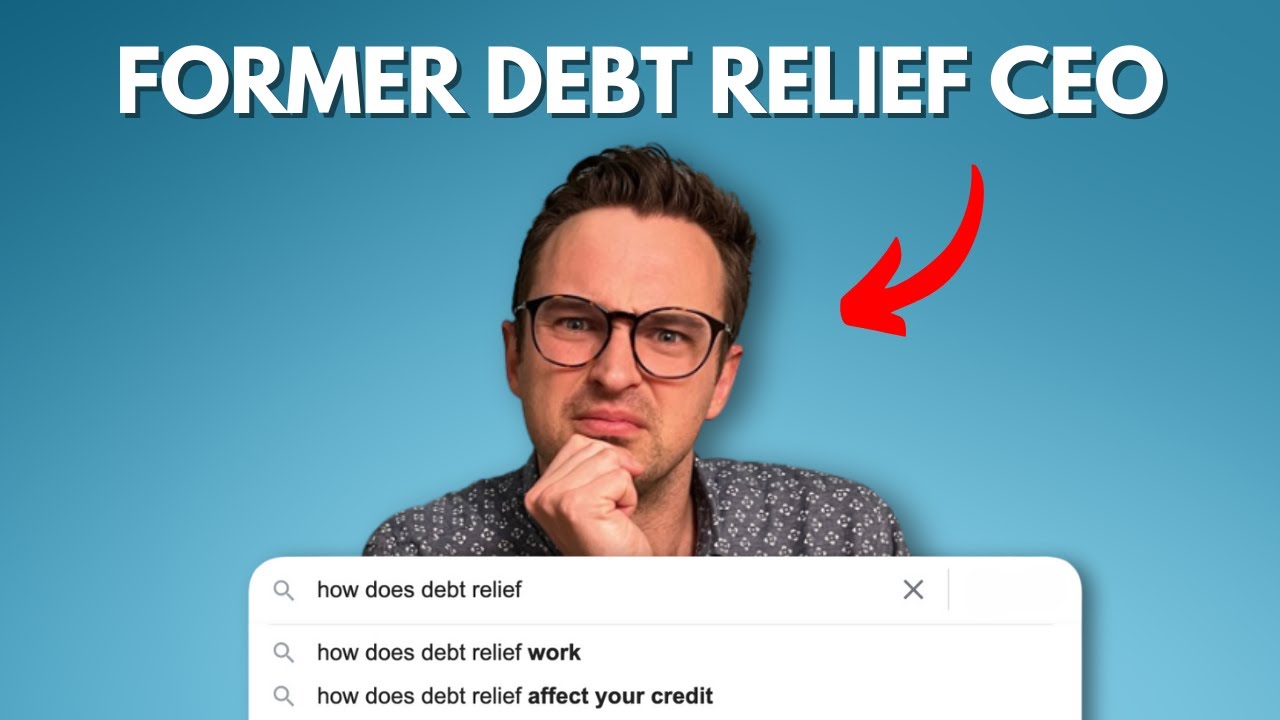
How Debt Settlement Works In 2024
Debt settlement is an alternative to debt consolidation. Here are some frequently asked questions regarding this debt management strategy:
What Is Debt Settlement?
Debt settlement involves negotiating with creditors to settle your debts for less than the full amount owed. This approach typically requires working with a debt settlement company or negotiating directly with creditors.
How Does Debt Settlement Differ From Debt Consolidation?
Debt settlement aims to reduce the total amount owed by negotiating with creditors, whereas debt consolidation focuses on combining multiple debts into a single loan or credit line.
What Are The Potential Benefits Of Debt Settlement?
Debt settlement can potentially reduce the total amount owed and provide a faster path to becoming debt-free. It is often considered an option for individuals who are unable to afford the monthly payments associated with debt consolidation.
What Are The Risks Of Debt Settlement?
Debt settlement can have negative consequences, including potential damage to your credit score, creditor lawsuits, and tax implications. It is essential to carefully consider the risks before pursuing this option.
Is Debt Settlement The Right Choice For Me?
Debt settlement is a viable option for individuals facing significant financial hardship and who are unable to meet the monthly payments associated with debt consolidation. However, it is essential to consider the risks and potential consequences before proceeding.
People Also Ask
Why Do We Consolidate Debts?
To simplify repayment and reduce the number of payments and interest rates.
Is It Good For Your Credit To Consolidate Debt?
Temporary negative impact due to a hard inquiry, but long-term benefits from simplified debt and consistent payments.
Can I Put All My Debt Into One Payment?
Yes, through a debt consolidation loan or balance transfer credit card.
Conclusion
Debt consolidation can be an effective solution for simplifying your financial life, reducing monthly payments, and working towards becoming debt-free. By combining multiple debts into a single loan or credit line, you can potentially secure a lower interest rate, streamline your payments, and improve your overall financial well-being. However, it is crucial to evaluate the benefits, risks, and alternatives based on your unique circumstances and financial goals.
Whether you choose to consolidate debt, debt settlement, or another debt management strategy, responsible financial management and a commitment to long-term financial stability are key to achieving a debt-free future.
